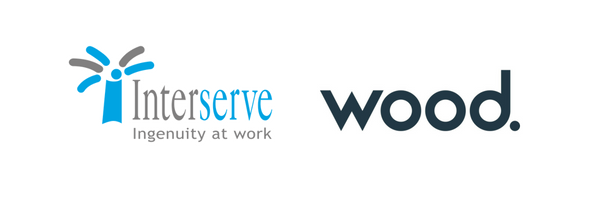In 2017 Northumbrian Water Group’s first Innovation Festival landed in the North East, and this year it was bigger and better than ever.
The aim of the week is to take 13 societal and environmental problems and applying design thinking techniques to try to solve them in five action packed days. With 25 projects from last year’s festival already implemented and working – including the NWG Living Wall outside Haymarket metro station – we eavesdropped on a couple of this year’s sprints to find out what might be on the horizon.
Sprint 1: Building Blocks for the Future
How can innovation and tech improve design, construction operation and maintenance?
Delivered by: Interserve and Wood.

This sprint looked at the huge demand for housing in England, which is exacerbated by the six to eight-month turnaround time for new homes to be built. How can we harness advances in technology to both speed up and improve this process?
The team – which included delegates from Nemenke, Speckle and the University of Durham - started by establishing their long term goal: a fully automated design and construction process. Sub sprints included:
Guest talks from companies such as Nissan and Gartner invited sprint attendees to ask what we can do within construction to use technology as effectively as the automotive and retail industries do.
Sprint facilitator Phil Willcox felt confident about the ideas coming out of the team. “It’s often a challenging process for people because you’re asking them to do lots of thinking, make decisions and generate ideas in quick succession. However, we’re on track and I’m confident about, and looking forward to seeing, them present business cases for how we can solve some of the problems identified within construction.”
Sprint 2: Smart Objectives
Smart devices are filling up our homes. How can we improve customers’ lives by making the most of Smart technology?
Delivered by: CGI and Northumbrian Water Group
.png?h=200&w=600&la=en&hash=648F56CC549F980CC98FF4105D75F5B232B05C98)
This sprint focused on how smart technology could reduce wastage in the water industry and was delivered by CGI, whose high-end IT consultancy and global delivery model help drive down costs and speed up implementation of strategic initiatives.
While it is estimated that 40% of homes will have an Amazon Echo device by the end of 2018, most of us stop even looking at our water meter within 30 days of its installation. The team – which included representatives from different industry sectors as well as NWG customers – looked at how to marry up existing smart technology with current water monitoring and measuring techniques. This would improve accuracy, reduce cost and consumption, and hopefully make for happier customers.
Sub-sprints also looked at the four main metrics which impact a customer (water colour, transparency, odour/taste and pressure) and the solutions currently offered to improve the situation. Better monitoring, problem detection and reporting would reduce the need for residents to ‘run their tap for half an hour’, a suggestion most environmentally (and fiscally) conscious homes would rather avoid.
CGI Vice President Stuart Brand was thoroughly enjoying the week. ‘We started with quite a broad question: what could Northumbrian Water Group do to improve customers’ lives? We then mapped out several different types of customers, looked at some quick solutions, but also looked at definitions – what do we mean by ‘measure’ and ‘monitor’? What do we even mean by water – is it just what comes out of the tap, or what runs off our customers' gutters and roofs?’
‘Our next challenge is to start creating prototypes of some of the solutions, from wireframes of websites to maybe even physical objects. The final challenge will be taking all this learning beyond the week and producing some real-world changes.’
So what did we learn?
- It’s time to link social and environmental issues up with new and emerging technology – why would somebody look at a meter hiding in their cupboard when they could ask Alexa instead?
-
Creativity is key – each sprint had lightning talks by magicians, comedians, and artists to help attendees think outside of the corporate box
-
It’s not always about robots and drones! – we met Europe’s first pioneering dog trained to sniff out leaks, and plenty more exciting schemes are in the pipeline for the water, gas and construction sectors.
To follow the rest of the week’s activity, visit the Northumbrian Water Group website or catch up at the end of each day on their video channel, IFTV.


